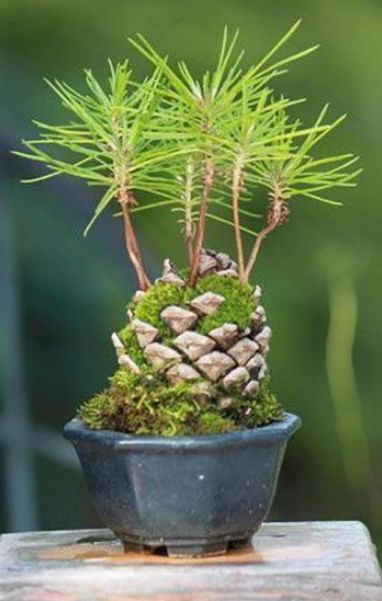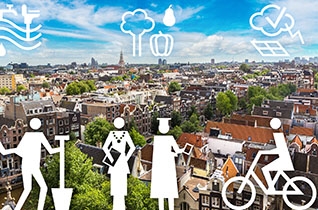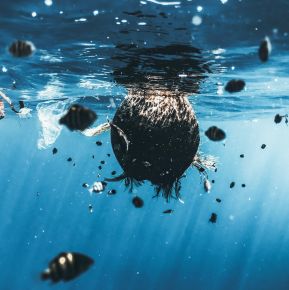 |
|
|
| View this newsletter online |
 |
Research School for Socio-Economic and
Natural Sciences of the Environment |
| SENSE e-News |
|
|
  |
Newsletter December 2021
01 December 2021 |
|
 |
| • |
Discussion Group Sustainable Cacao & Coffee October 2021 - Personal Involvement with Research: Conflict of Interest? ›› |
| • |
MOOC: Citizens co-creating sustainable cities, 1 February - 22 March 2022 ›› |
| • |
Speciation and Bioavailability of Metals, Organics and Nanoparticles, 13-17 June 2022 ›› |
| • |
Overview of PhD / postdoc courses December - February 2021 ›› |
| • |
Overview of recently announced PhD / postdoc courses ›› |
| • |
Transdisciplinary Lunch Crowd: A diagnostic approach for analysing what went well and not so well in a transdisciplinary project, 15 December 2021 ›› |
| • |
Nederlands Aardwetenschappelijk Congres (NAC), 10-11 March 2022 ›› |
| • |
Overview of upcoming events December ›› |
| • |
Overview of recently announced events ›› |
| • |
Upcoming PhD graduations ›› |
| • |
A call for papers for the special issue of the Journal of Integrative Environmental Sciences, titled "Integrative approaches to the environmental and socio-economic SDGs" (deadline: 31 December 2021) ›› |
| • |
A call for papers for the special issue of the Journal of Integrative Environmental Sciences, titled "Integrative sustainability education: emerging concepts and approaches" (deadline: 15 January 2022) ›› |
| • |
A call for papers for the “Water Journal” special issue titled "Water Management for Climate Smart Agriculture" (deadline: 15 March 2022) ›› |
| • |
Call SENSE Course Development (deadline: 31 May 2022) ›› |
| • |
Overview job vacancies ›› |
| • |
Other vacancies in the SENSE field ›› |
|
|
|
 |
 |
 |
| Editorial |
 |
| About filling glasses and raising trees |
Because of the season I would like to talk a bit about glasses and trees.
Last month COP26 took place. A noteworthy moment was the emotional apology of the chairman at the closing of the meeting. The sum of the measures that are promised to mitigate climate warming is not sufficient to get the planet and ourselves out of danger. The well-known climate campaigner Greta Thunberg called the summit a “failure” and a “PR exercise”.
A lot can be and is being said about Greta. Many people love her person and what she says and does. And there are also many who distance themselves from her, or who downright dislike or hate her.
 But whatever your opinion, her voice is being heard and being answered by world leaders. When the Dutch prime minister Mark Rutte called for “action, action, action” at the COP, it was a response to Greta’s “blah, blah, blah”, and only days later Rutte felt forced to be as good as his words and promised that the Netherlands will stop subsidising fossil energy. But whatever your opinion, her voice is being heard and being answered by world leaders. When the Dutch prime minister Mark Rutte called for “action, action, action” at the COP, it was a response to Greta’s “blah, blah, blah”, and only days later Rutte felt forced to be as good as his words and promised that the Netherlands will stop subsidising fossil energy.
In the Dutch newspaper NRC, Heleen van Soest (PBL) and Jan Paul van Soest wrote that “the current climate policy is more than just ‘blah blah blah’”. They argued that it may be so that the prognoses for world temperature may be plus 2.7 degrees by 2100 based on current policy, but that the prognoses at the beginning of the century were 4 to 6 degrees.
The glass of global climate policy may be half empty or half full, depending on your perspective.
 Another worry these days is the covid situation that confronts us all over again with restrictions, and some of us or our beloved ones with more or less serious health issues. The times call for taking good care of ourselves and others. Another worry these days is the covid situation that confronts us all over again with restrictions, and some of us or our beloved ones with more or less serious health issues. The times call for taking good care of ourselves and others.
At my home my daughters ask me when we will have and decorate the Christmas tree, in Dutch “de boom opzetten”. Interestingly enough we also have a Dutch saying “een boom opzetten” which means as much as having a good conversation with someone about a topic.
Maybe these days call as much for “een boom opzetten” with others to keep connected, as for “de boom opzetten” for some Chrismas cosiness.
I wish all of us a time of filling our maybe half-full glasses, and “raising a tree” in the physical or metaphorical sense.
Marjolijn Dannenburg, Communication officer |
|
|
 |
| SENSE Blog |
 |
| Discussion Group Sustainable Cacao & Coffee October 2021 - Personal Involvement with Research: Conflict of Interest? |
 Researchers are humans, who despite their professional focus on objective collection of evidence, are also moved by internal motivations. In this story we share personal and collective ideas about what personal involvement means for what we research, how we do it and what we want to achieve with it. What are the implications of seeing personal involvement as a potential conflict of interest? Researchers are humans, who despite their professional focus on objective collection of evidence, are also moved by internal motivations. In this story we share personal and collective ideas about what personal involvement means for what we research, how we do it and what we want to achieve with it. What are the implications of seeing personal involvement as a potential conflict of interest? |
|
|
|
| Do you want to have your own blog on the SENSE website, or do you want to write a single blog post? Please contact marjolijn.dannenburg@wur.nl. |
|
|
|
 |
 |
|
 |
 |
| Upcoming courses and discussion groups |
 |
| MOOC: Citizens co-creating sustainable cities, 1 February - 22 March 2022 |
 Around the world, major challenges of our time such as population growth and climate change are being addressed in cities. Here, citizens play an important role amidst governments, companies, NGOs and researchers in creating social, technological and political innovations for achieving sustainability. Around the world, major challenges of our time such as population growth and climate change are being addressed in cities. Here, citizens play an important role amidst governments, companies, NGOs and researchers in creating social, technological and political innovations for achieving sustainability.
This MOOC will teach you about the dynamics of co-creation and the key principles of citizens interacting with service providing companies, technology and infrastructure developers, policy makers and researchers. You will gain an understanding of major types of co-creation and their interdependency with their socio-technical and political contexts. You will become equipped to indicate how you can use co-creation to develop innovative technologies, policy arrangements or social practices for a sustainable city in your own community. You will demonstrate this by developing an action plan, research proposal or project idea. |
|
|
| Speciation and Bioavailability of Metals, Organics and Nanoparticles, 13-17 June 2022 |
 The course program will focus on the analytical and physical chemistry of metal ions in complexing aqueous environments and the bioavailabilities of different species. Due attention will also be given to the speciation and bioavailability of organic compounds. The course program will focus on the analytical and physical chemistry of metal ions in complexing aqueous environments and the bioavailabilities of different species. Due attention will also be given to the speciation and bioavailability of organic compounds.
Particular attention will be paid to the speciation and physicochemical characterization of nanoparticles, including plastic particles, as well as the bioavailability of nanoparticulate chemical species. |
|
|
| Overview of PhD / postdoc courses December 2021 - February 2022 |
- Deep Learning for Image Analysis
3 December 2021 - 10 January 2022, online
- Geostatistics
13-17 December 2021, Wageningen
- Global perspectives on adaptive wildlife management
2-16 January 2022, Sweden & South Africa
- Systematic approaches to reviewing literature (NEW)
5 January - 9 February 2022
- Intermediate R
11-21 January 2022, online
- Basic Statistics
12-20 January 2022, online
- Soil Ecology, online
16-20 January 2022, Lunteren
- Electron Microscopy course - The Basics: from A to W
17-21 January 2022, Amsterdam & Wageningen
- Microbial Physiology and Fermentation Technology
17-28 January 2022, Delft and online
- Making Sense out of (Bio)analytical Data in Chemical Mixture Assessment (NEW)
18 January - 16 February 2022, online
- Microbial Ecology
23-28 January 2022, Bunnik
- Philosophy and Ethics of Food Science and Technology
27 January - 3 March 2022
- Biobusiness Winter School (NEW)
9-11 February 2022, online
- Multivariate Analysis (NEW)
9-15 February 2022, Wageningen University
- Transformative and participatory qualitative research approaches and methods (NEW)
14 February - 10 March 2022, online
- Introduction to RNA-seq and functional interpretation
21-25 February 2022, online
- Statistical Uncertainty Analysis of Dynamic Models (NEW)
28 February - 4 March 22, Wageningen
|
|
|
| Overview of recently announced PhD / postdoc courses |
|
In case you are interested in either participating or teaching a course that is currently not in the programme, please do not hesitate and contact us with your suggestions. |
|
|
|
 |
 |
|
 |
 |
| Upcoming Events |
 |
| Transdisciplinary Lunch Crowd: A diagnostic approach for analysing what went well and not so well in a transdisciplinary project, 15 December 2021 |
| Transdisciplinarity in North-South collaborations, knowing what happens between natural sciences and social constraints is a challenge. Transdisciplinary projects have large aspirations to advance science and address societal problems. However, their participatory nature leads them to find their own direction, sometimes beyond the scope and conceptual frames we put on them. |
|
|
| Nederlands Aardwetenschappelijk Congres (NAC), 10-11 March 2022 |
We are happy to announce that for the first time NAC will bring together researchers from the Earth and Environmental Sciences.
Meanwhile the NAC team is working hard on the organization of this event. |
|
|
| Overview of upcoming events December 2021 |
|
|
|
|
| Overview of recently announced events |
|
|
|
|
| Upcoming PhD graduations |
 |
| Overview of PhD graduations upcoming period |
- Shokouh Rahsepar
Marine deep oil spill: fate and biodegradation
1 December 2021, Wageningen University, Environmental Technology
- Magnus van Niekerk
Predicting the occurrence and spread of harmful microorganisms with statistical models
1 December 2021, University of Twente, Earth Observation Science
- Robin Smale
Smart Grids the Human Scale: Investigating householder participation in the decentralization, digitalization and decarbonization of energy grids in the Netherlands
2 December 2021, Wageningen University, Environmental Policy
- Mohaned Sousi
Assessing biological stability of drinking water treated by reverse osmosis and remineralisation. Method development and application
9 December 2021, IHE Delft, Water Supply
- Claudia Stöcker
Unmanned Aerial Vehicle Mapping for Responsible Land Administration
9 December 2021, University of Twente, Urban and regional and Geo-Information Management
- Joeri Willet
Alternative water resources for industry – Designing environmentally compatible regional supply networks
10 December 2021, Wageningen University, Environmental Technology
- Chalachew Abebe Mulatu
Downstream consequences of Ribb River Damming, Lake Tana basin, Ethiopia
16 December 2021, IHE Delft, Water Resources and Ecosystems
|
|
|
|
 |
 |
|
 |
 |
| Calls |
 |
| A call for papers for the special issue of the Journal of Integrative Environmental Sciences, titled "Integrative approaches to the environmental and socio-economic SDGs" (deadline: 31 December 2021) |
The SDGs are particularly relevant for the Journal of Integrative Environmental Sciences (JIES). The vision of the SDGs is to transform the living conditions of all people on the Earth so that we can live within the ‘planetary boundaries’ while enjoying economic prosperity and social wellbeing. The transformative change aimed through the SDGs requires a paradigm shift in thinking to break away from the current development trajectories that are resource intensive, inefficient (hence wasteful), environmentally damaging, growth-driven, socially inequitable and unjust. The SDGs offer the opportunity to approach sustainable development in an integrated, interconnected way.
This special issue is part of a cross-disciplinary collection in support of the European Commission’s Horizon Missions, with contributions from across the Life, Earth and Environmental Sciences. These missions collectively represent important research and policy priorities facing our global society. The collection will be published to be timed with Earth Day 2022 (April 22nd, 2022) as part of a collaborative effort to support real-world research that addresses the SDGs and global policy priorities. |
|
|
| A call for papers for the special issue of the Journal of Integrative Environmental Sciences, titled "Integrative sustainability education: emerging concepts and approaches" (deadline: 15 January 2022) |
Higher education institutions play a critical role in tackling complex sustainability challenges. This happens through research, operational management of the institution, and education of students. Although sustainability pedagogy and specific skills and learning outcomes for individual courses are increasingly being represented, the scientific literature still lacks depth in analyzing how to teach integrative skills.
Integration for sustainability education can take different forms. To prepare students and re-educate leaders (e.g. managers of companies, NGOs and government, teachers) for addressing the complexity of sustainability challenges and becoming agents of change, higher education and lifelong learning programs are especially important and need to target integration skills. For this special issue, we encourage authors to consider the following dimensions of integration: sustainability in educational programming, student population, co-curricular activities, institutional level, disciplines/stakeholder engagement, and sustainability issues/challenges. |
|
|
| A call for papers for the “Water Journal” special issue titled "Water Management for Climate Smart Agriculture" (deadline: 15 March 2022) |
As you know, in agriculture water resources shortages have become an increasingly serious problem, particularly in arid and semi-arid regions due to climate change. Changes in rainfall and temperature patterns threatens the agricultural production and increase the vulnerability of people dependent on agriculture. In addition to that, up to 70% of global water consumptions go to the agriculture sector uses. Thus, improving water management especially for agriculture will support achieving the global goals of food and water security. Therefore, the Climate Smart Agriculture (CSA) approach is required to ensure the transforming and reorienting the agricultural systems to adapt to the effects of climate change and ensure smart use of the limited water available. In this light we find it important to share the latest insights on water management for climate smart agriculture.
We, therefore, would like to invite you to share your latest work on this topic in the form of a research or review paper for the special issue entitled "Water management for Climate Smart Agriculture" as part of the online MDPI Water journal.
Research papers are welcome on topics like: Water scarcity, Water conservation, Rain water harvesting, Water use efficiency, Irrigation (efficiency), Hydroponics, Salinity, Hydrological modelling. Attention to socio-economic, policy and gender related aspects are encouraged also. So, I invite you and your colleagues to submit your articles to this special issue.
Your submitted articles will provide future directions and guidelines for stakeholders like national and international agencies, policy makers, scientists and farmers to assess and solve the regional water and agriculture problems in arid and semi-arid regions.
Please let us know if you need any help. Thank you for your kind consideration.
Prof. Coen Ritsema*, Dr. Michel Riksen* and Dr. Karrar Mahdi* (karrar.mahdi@wur.nl)
*Wageningen University |
|
|
| Call SENSE Course Development (deadline: 31 May 2022) |
| To support the development of new courses and the collaboration between members, SENSE allocated an annual fund of 20.000 euros to support course development. Each proposal can apply for a maximum of 4.500 euro. Applications are open to all SENSE member institutes. |
|
|
| Job vacancies |
 |
| Overview of vacancies at SENSE partners |
- Professor and Chair of the Public Administration and Policy Group, Wageningen University
Apply before 2 December 2021
- Researcher / Geo-ICT expert on Semantic infrastructure, University of Twente
Apply before 3 December 2021
- PhD Greenhouse gas balance of fen meadow landscapes at the Water Systems and Global Change group, Wageningen University
Apply before 14 December 2021
- Assistant or Associate Professor in the field of atmospheric sciences, cloud/aerosols dynamics and microphysics, Tenure Track, Wageningen University
Apply before 15 December 2021
- Postdoc position in polar climate modelling and remote sensing, Utrecht University
Apply before 18 December 2021
- Postdoc position in earth system modelling, Utrecht University
Apply before 18 December 2021
- Associate Professor of International Development Studies and Climate Change, Utrecht University
Apply before 18 December 2021
- Researcher (postdoc) Regulatory design of data protection in humanitarian practice, University of Twente
Apply before 19 December 2021
- Assistant Professor in Spatial Planning, Utrecht University
Apply before 19 December 2021
- Junior Assistant Professor Environmental Sciences, Utrecht University
Apply before 20 December 2021
- PhD position: 'Climate mobility in the Bengal and Pacific Borderlands', Wageningen University
Apply before 21 December 2021
- PhD position: 'Climate mobility in the West African Borderlands', Wageningen University
Apply before 21 December 2021
- Researcher Ethical artificial intelligence for unmanned aerial vehicles, University of Twente
Apply before 9 January 2022
|
|
|
| Other vacancies in the SENSE field |
|
|
|
|
| More vacancies |
| During the month new vacancies are regularly posted on the SENSE vacancy page. |
|
|
|
 |
 |
|
 |
|